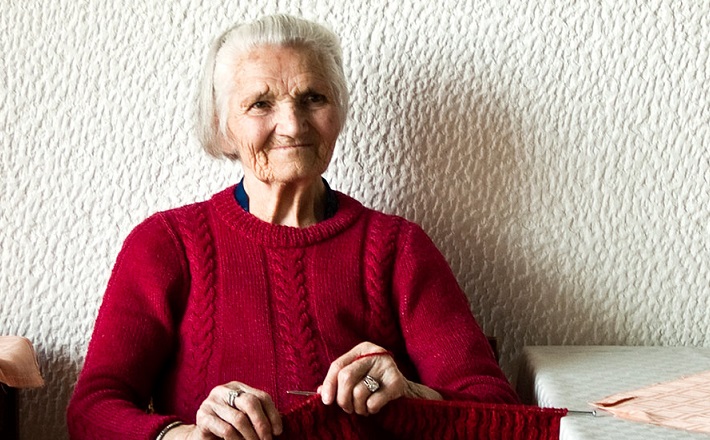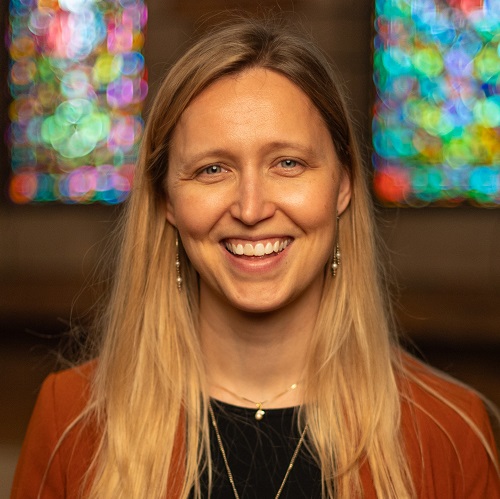It’s never great for a preacher’s ego when someone snores during your sermon. For me, it happens at least a once a month.
Once a month I preside at a communion service at our local nursing home. And when I preach, there’s usually a gentle snore, softly but consistently providing a rhythmic soundtrack to my careful exposition of Isaiah, or Mark, or Paul. It’s deflating every time.
It’s a frustrating position to be in as a preacher — but it’s just as frustrating for older adults. Picture Mildred: at 88 years old and a lifelong church-goer, our mythical Mildred has been a woman of faith longer than most of us have been alive. She lights up when it is time for Bible Studies and worships at her care facility, arriving 15 minutes early to get a seat. Yet 10 minutes into most services, Mildred (and a few of her peers) are dozing through the message.
Frustrating for all. More often than not, the preacher’s frustration is not so much about ego (though let’s be honest, fellow Working Preachers, there is a bit of that), but earnest discouragement: Mildred deserves to hear God’s Word of grace and goodness. All of our parishioners living in assisted living communities, nursing homes, or care facilities do. Often times they have been our most faithful members; we love them dearly and have wonderful memories with them.
How can you reach and guide someone when “the way we’ve always done it” isn’t what they need?
We as preachers and teachers can feel ill-equipped to deal with changes that normally come with aging such as hearing impairment, dementia, or just plain old fatigue. These changes can challenge our older adults to fully engage in worships or Bible studies. And it can be difficult for them to admit — especially when it feels like a threat to their long-held independence. So rather than speaking up and asking the preacher to talk louder or bring a larger-print bulletin or to just admit they’re kind of confused, older adults may choose to sit, hesitant and withdrawn, stoically bearing it. And there’s nothing that kills a sermon quicker than an “I’m stoically bearing this” kind of face.
And yet, there are certain things we can do to make serving Mildred and her peers better for both preacher and parishioner. What follows are some specific suggestions from one preacher’s experiences and her discussions with a gerontological nurse with an expertise in long-term care settings.1
- On a practical level, accommodate for changes in vision, hearing, mobility, and memory that often accompany aging:
- Bring large print copies of everything. Like really large. Like 18 font large. Err on the side of hugeness.
- Ask both the people and the staff: should I be louder? Should I move closer? Should certain people sit up front or to one side of me? Do some people need reminders or physical assistance to get there? Maybe even provide a private opportunity for people to share (verbally or in a written survey) their needs or preferences.
- When asking a question in a Bible Study, give a longer amount of time for people to reflect than you normally might. Repeat or rephrase the question a couple of times, with long pauses in-between.
- On a more abstract level, keep in mind that meaning-making is a core facet of this stage of life. As people age and begin to think more about their own mortality, they often spend more time reflecting on their past experiences, reviewing them and drawing out what they mean. Reminiscing can be a therapeutic activity. Be intentional in your sermons or Bible Studies to coax out the wealth of experience that lies within these older adults. Don’t be afraid to give them new information — many will love this — but make sure to include those meaning-making opportunities that allow them to connect the message to their own lives and stories.
- Consistency and relationships are important. Be there at the same time every week if you can — it’ll build trust and structure. The older adults you visit will need to get to know you in order to feel comfortable. Spend time intentionally developing relationships; they’ll be more willing to share their experiences with you if they feel a relationship of trust with you.
- Being consistent is not always possible for a busy Working Preacher, especially if you are on a rotation with other local pastors. But you can be consistent in ritual and routine (in a perfect world, coordinate with the other pastors to have the same routine): start the same way, with the same prayer; follow the same format, and end the same. For people experiencing memory loss or confusion, visual cues such as familiar symbols — a cross, the collar — may help to make the purpose of the activity obvious. The more they know what’s coming, the more they can relax into the routine and be present in the discussion at hand.
- Use different activities to help older adults connect with your message. Discussion isn’t always the best platform for nourishing and enriching faith at this stage of life. There is almost nothing more special than watching 90-year-old hands mold dough in ways they’ve been doing for 80-odd years. There is almost nothing more powerful than hearing thirty octo-plus-genarians belt out “How Great Thou Art” from the bottom of their souls. Use the activities they’ve been doing their entire lives and help them see how they are theological, meaning-filled, holy.
- Finally, be prepared to engage even more deeply than you might normally do. Many older adults need others to “reach in” to them because it can be harder for them to reach out. But there is deep wisdom there. And finding that deep wisdom will be a blessing for you, just as much as it will be for Mildred.
This is good work to engage in, Working Preacher. And take heart: snores and ego are no match for the Gospel at any age.
Notes:
1 Based on a conversation on Nov. 8, 2014, between the author and Kathleen Moisio, Ph(C), RN, BSN, Clinical Assistant Professor and Coordinator, Comprehensive Gerontologic Education Partnership, Pacific Lutheran University School of Nursing, Tacoma, Wash.

